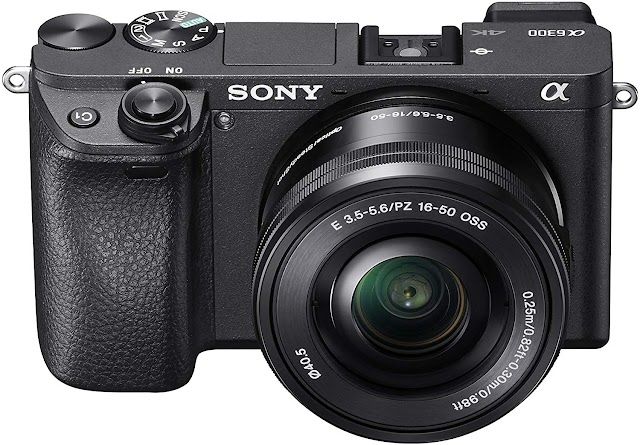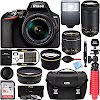RX100 III is the most premium of pocketable premium compacts from Sony. Equipped with a CMOS and 24-70mm sensor equivalent to the F1.8-2.8 Zeiss lens, making the RX100 iii images have sharp colors even in low light.
In addition to the redesigned lens, the Mark III is different from other RX100 brothers by including a built-in and OLED viewfinder that can be pulled with the same T layer as the camera lens to reduce flares and ghosting. The RX100 III also features built-in Wi-Fi and NFC connectivity for sharing wireless images and camera control via a smartphone.
Not to forget, the camera is equipped with a 3-inch whitemagic LCD tilting with 1.23M dots. Unfortunately, this LCD screen still doesn't have a touch screen feature. This is a pretty shortcoming, considering that RX100 iii is a premium pocket camera from Sony. In addition, the price of the Sony RX100 III is priced at 6.9 millions.
Seeing the development of premium pocket cameras that have great specifications increasingly in demand in the market, Sony released their latest pocket camera, the Cyber-shot RX100 III. The design carried is not much different from the previous generation, but the inside of Sony completely overhauled so as to produce a resolution of 20 megapixels.
Changes that took place included bright new lenses throughout the zoom range, plus the latest generation BIONZ X image processor from Sony, improved autofocus. Now the LCD can be tilted up to 180 degrees and there is already a smart electronic viewfinder.
The RX100 III also makes film shooters far better, provides better stabilization, full sensor video capture, zebra striping, and even clean HDMI output functions. Sony provides cameras with Zeiss Vario-Sonnar T. branded lenses.
This lens is bright throughout the zoom range, starting at f / 1.8 at wide angles and fixed at f / 2.8 by telephoto position. The lens is then combined with a 20.2 megapixel BSI-CMOS sensor.
Sony has also provided a camera with 3EV neutral density filter like the RX100 ii. So you will be able to use a wide aperture to blur the background or avoid diffraction, even in bright light.
Another good news is that there is now a built-in pop-up electronic viewfinder. Sony has chosen SVGA OLED Tru-Finder with 1,440,000 points. Given its size, the viewfinder is very good. But to make room for the viewfinder, this model must release the hot shoe flash.
Sony uses the latest generation Sony BIONZ X image processor that replaces the BIONZ chip used by RX100 and RX100 II. That makes the Sony RX100 mark III faster and increased performance combined with increased buffer depth.
Another nice touch is the updated LCD articulation mechanism. RX100 III uses a 3-inch whitemagic LCD tilting with 1.23M dots. Now the LCD can be tilted up 180 degrees, or down by 45 degrees. That means you can use RX100 III for selfies.
As we mentioned, Sony also improved the capability of taking RX100 III movies in several areas. Especially, thanks to the new BIONZ X image processor, now the camera records video by unpacking the entire image sensor for each frame and then downsampling to the output resolution.
There is also a new XAVC S compression option, with a resolution of 1,920 x 1,080 pixels (Full HD) or a lower and 50Mbps bit rate. The RX100 III is also equipped with video stabilization and a new SteadyShot Intelligent Active Mode technology. This is quite impressive, because you will get a clear video.
As a complement to the Sony RX100 III specification, the camera also has built-in Wi-Fi wireless network connectivity, as well as Near Field Communications technology for fast pairing with an Android camera. RX100 III also adds support for Sony's PlayMemories Camera Application, which adds functionality to the camera. Review of the Sony RX100 III Indonesia
Besides its wireless connectivity, the Sony RX100 III also uses a Micro HDMI port for high-def video output and a high-speed USB 2.0 data port to connect to your computer. Images and movies are stored in a single slot that is compatible with Secure Digital or Memory Stick Duo cards, and it is also compatible with SDHC, SDXC and UHS-I SD cards, not to mention PRO Duo, High Speed Pro Duo or PRO HG MS Card duo.
For durability, RX100 uses a lithium-ion NP-BX1 battery. The battery is recharged inside the camera through the Multi Terminal Micro USB port. Sony assesses the battery life as 320 shots using an LCD monitor, or 230 shots with an electronic viewfinder, with CIPA standards.
Although it has the same design as before, but RX100 III has a technology that is better able to get clear photo images. You could say this is one of the best pocket cameras in its class that was successfully created by Sony.
This does not escape the faster lens, the zoom range is more useful in more complex lighting and the EVF is really good. This feature is all installed on a fairly small camera. Talking about the price of the Sony RX100 III, this camera was released at 6.9 million. This is quite in accordance with the specifications carried by Sony.
Full Specifications of Sony RX 100 III
| General | |
|---|---|
| Brand | Sony |
| Model | Sony Cyber-shot DSC-RX100 III |
| Announced | 2014-05-15 |
| Body Type | Large sensor compact |
| Lens | |
| Manual Focus | |
| Lens Mount | fixed lens |
| Lens Focal Range | 24-70 mm (2.9x) |
| Max Aperture | F1.8-2.8 |
| Macro Focus Range | 5cm |
| Screen | |
| Screen Type | Tilting |
| Screen Size | 3" |
| Screen Resolution | 1,229k dots |
| Live View | |
| Touch Screen | |
| Viewfinder | |
| Viewfinder | Electronic |
| Viewfinder Resolution | 1,440k dots |
| Viewfinder Coverage | 100% |
| Viewfinder Magnification | 0.59 |
| Photography Features | |
| Min Shutter Speed | 30s |
| Max Shutter Speed | 1/2000s |
| Continuous Shooting | 10.0 fps |
| Shutter Priority | |
| Aperture Priority | |
| Manual Exposure Mode | |
| Exposure Compensation | Yes |
| Custom White Balance | |
| Image Stabilization | |
| Built-in Flash | |
| Flash Range | n/a |
| Max Flash Sync | 1/2000s |
| Flash Modes | n/a |
| External Flash | |
| AE Bracketing | |
| WB Bracketing | |
| Exposure Modes | |
| Multi-Segment | |
| Average | |
| Spot | |
| Partial | |
| AF-Area | |
| Center Weighted | |
| DxO Sensor Scores | |
| DxO Overall Score | 67 |
| DxO Color Depth | 22.4 |
| DxO Dynamic Range | 12.3 |
| DxO Low Light ISO | 495 |
| Sensor | |
|---|---|
| Sensor Type | BSI-CMOS |
| Sensor Size | 1" |
| Sensor Dimensions | 13.2 x 8.8 mm |
| Sensor Area | 116.16mm2 |
| Sensor Resolution | 20 megapixels |
| Max Image Resolution | 5472 x 3648 |
| Max Native ISO | 12,800 |
| Min Native ISO | 125 |
| RAW Support | |
| Autofocus | |
| AF Touch | |
| AF Continuous | |
| AF Single | |
| AF Tracking | |
| AF Selective | |
| AF Center | |
| AF Multi Area | |
| AF Live View | |
| AF Face Detection | |
| AF Contrast Detection | |
| AF Phase Detection | |
| Number of Focus Points | 25 |
| Number of Cross Focus Points | Unknown |
| Video Features | |
| Video Resolutions | 1920 x 1080 (60p/60i/24p), 1280 x 720 (60p/30p/24p/120p), 1440 x 1080 (30 fps), 640 x 480 (30 fps) |
| Max Video Resolution | 1920 x 1080 |
| Video Formats | MPEG-4, AVCHD, XAVC S |
| Microphone Port | |
| Headphone Port | |
| Connectivity | |
| Wireless Connectivity | Built-In |
| HDMI | |
| USB | USB 2.0 (480 Mbit/sec) |
| Physical | |
| Environmental Sealing | |
| Water Proof | |
| Dust Proof | |
| Shock Proof | |
| Crush Proof | |
| Freeze Proof | |
| Weight | 290g |
| Physical Dimensions | 102 x 58 x 41mm |
| Battery Life | 320 shots |
| Battery Type | Battery Pack |
| Battery Model | NP-BX1 |
| Other Features | |
| Self Timer | Yes (2 or 10 sec, self-portrait, continuous) |
| Timelapse Recording | With downloadable app |
| GPS | None |
| Storage Type | SD/ SDHC/SDXC, Memory Stick Pro Duo/ Pro-HG Duo |
| Storage Slots | 1 |








0 Comments